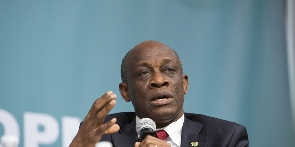Former Finance Minister, Seth Terkper, has said while tax exemptions are good, the Ghana Revenue Authority (GRA) must be strengthened to constantly audit the tax incentive regime to prevent abuse.
The admonishing by the former Finance Minister comes on the back of a call for the government to limit Ghana’s level of tax incentive since the country was losing huge revenue to these exemptions.
ActionAid Ghana, an NGO, told the press last week that the current incentive regime was taking a toll on the country’s education sector.
Speaking to GhanaWeb in an exclusive interview on Friday, November 20, 2020, Mr Terkper said while there is a good case to make for incentives, regular audits of the tax exemption is essential to cutting out abuse.
“Certain incentives are inevitable. If you want to attract investments, you have to give incentives. If you want to do social intervention and if you want to bring back the economy after COVID-19, you have to give some incentives so that when the economy recovers, we can plough it back.
“But having said that, it is true that Ghana has one of the highest levels of tax incentives…some it if though is because the loans that we take for projects, there are conditions that they cannot pay tax.
“But we can tackle abuse because every tax incentive comes with some abuse. We can minimise non-essential exemptions and make sure that we do audits. Serious audits. Strengthen GRA to do so regularly because that is the function of GRA, to check abuse of taxes,” he said.
A study by ActionAid Ghana on financing education in the country reveals $901.1 million has been lost in tax incentives through parliamentary tax waivers alone to corporations between 2018 and 2020 and about $657million through the GIPC investment in 2018.
The report titled ‘Financing education in Ghana: how progressive taxation can increase the government’s spending on public basic schools and reverse education privatisation’ was launched on Tuesday, November 17 in Accra.
The report noted that government expenditure allocation to the education sector is increasingly looking bleak, shifting away from the Global Partnership for Education (GPE) target of 20%.
Business News of Monday, 23 November 2020
Source: www.ghanaweb.com













